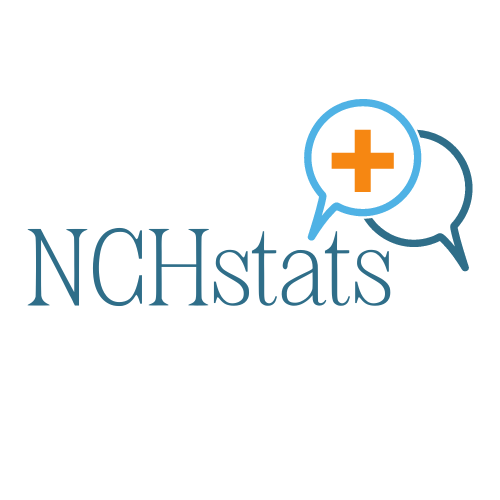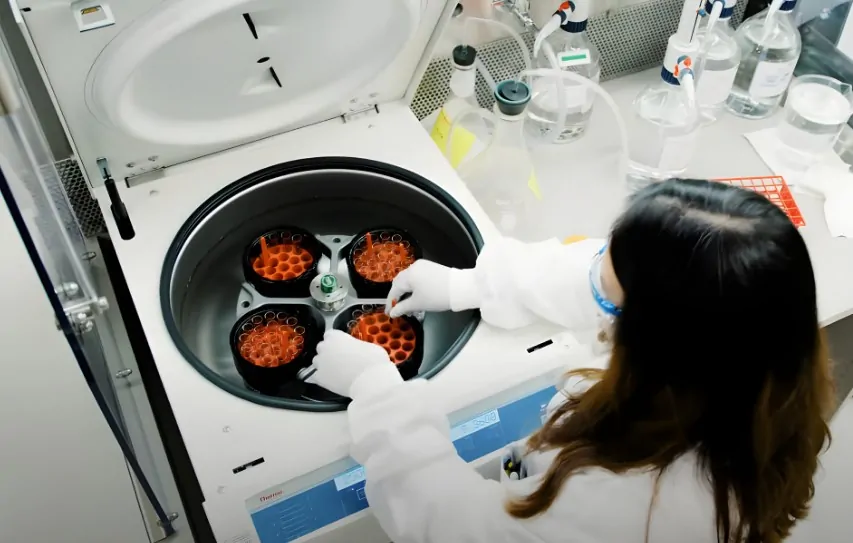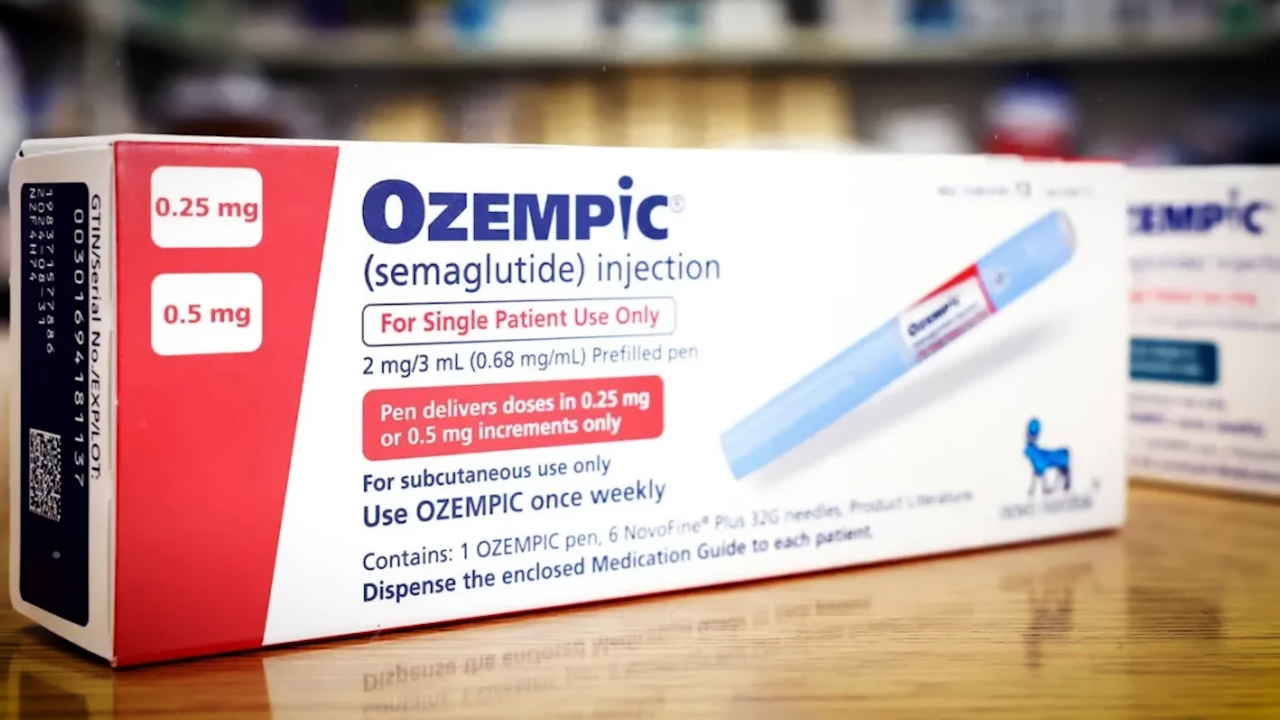Healthcare is shifting towards a model where treatments are customized for individual patients rather than applied uniformly across large populations. Personalized medicine (PM) sits at the core of this transformation, leveraging genetic, proteomic, and clinical data to guide treatment decisions with unmatched precision.
Clinical laboratories play a pivotal role in this transition, adapting to cutting-edge technologies and methodologies that enhance diagnostics, therapeutic interventions, and disease monitoring. The implementation of PM in clinical settings offers immense benefits: targeted treatments, improved patient outcomes, fewer adverse drug reactions, and cost-effective healthcare solutions.
However, the integration of PM into clinical practice comes with its own set of challenges, ranging from regulatory hurdles to data privacy concerns and the high cost of advanced diagnostics.
Key Takeaways
- Personalized medicine is transforming clinical labs, shifting from generalized treatments to targeted, patient-specific approaches.
- Next-generation sequencing (NGS) is a game changer, enabling faster, more precise genetic testing for disease detection and treatment.
- AI is improving diagnostics, reducing errors, and predicting disease progression more accurately than traditional methods.
- Mass spectrometry and proteomics are revolutionizing biomarker discovery, improving early disease detection and drug response monitoring.
- Regulatory, ethical, and cost challenges remain, but ongoing advancements in technology and policy reforms are helping labs overcome barriers.
The Role of Clinical Laboratories in Personalized Medicine Clinical laboratories are no longer just processing routine tests; they have become centers of innovation, leading the charge in the integration of PM. By analyzing genetic information, detecting biomarkers, and using AI-driven diagnostics, labs now play a key role in disease prevention, early diagnosis, and personalized treatment plans according to NCBI.
Key Responsibilities of Clinical Laboratories in PM:
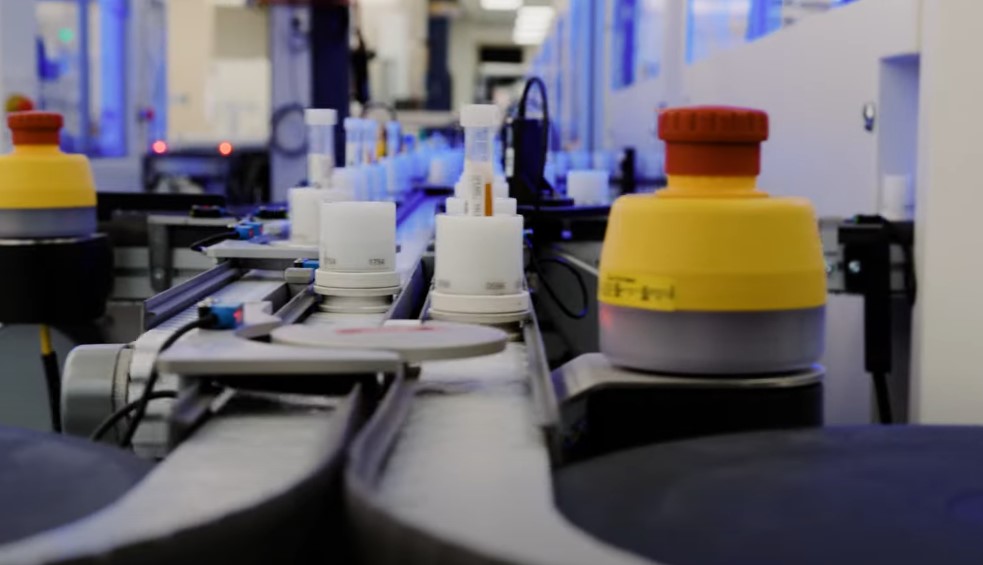
- Genetic and molecular diagnostics: Identifying genetic variants linked to diseases and drug responses.
- Biomarker discovery and validation: Developing measurable indicators of disease for targeted therapy.
- Companion diagnostics: Ensuring that patients receive the most effective treatment based on their molecular profiles.
- Therapeutic drug monitoring (TDM): Personalizing medication dosing to optimize therapeutic benefits.
- AI-powered decision support: Enhancing disease classification and treatment planning with machine learning algorithms.
Technologies Driving Personalized Medicine in Clinical Laboratories
1. Next-Generation Sequencing (NGS): A Genomic Revolution
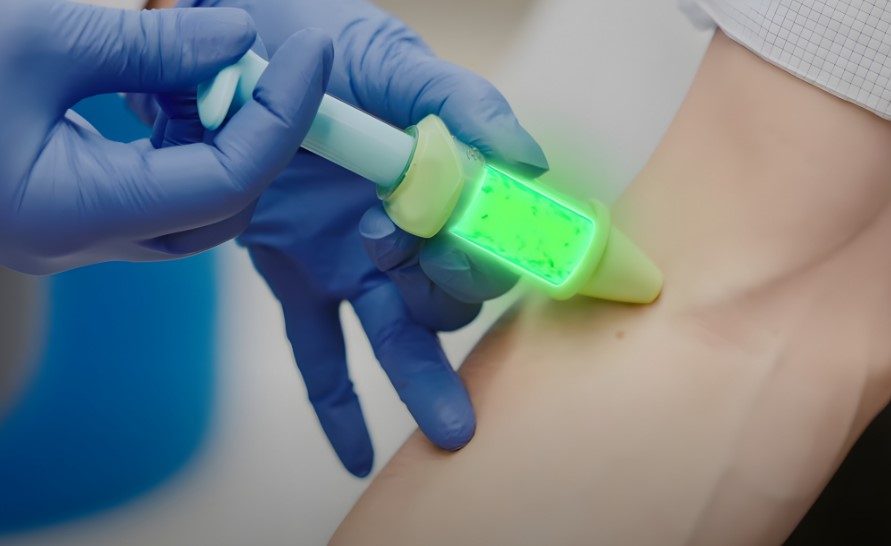
NGS is revolutionizing the way genetic information is used in clinical practice. Unlike traditional Sanger sequencing, which processes DNA linearly, NGS enables the simultaneous sequencing of millions of DNA fragments, making it faster, more efficient, and cost-effective as noted by PBMDC. This has opened new avenues for understanding genetic predispositions, diagnosing hereditary diseases, and guiding targeted therapies.
Applications of NGS in Clinical Laboratories:
- Cancer genomics: NGS is used to identify tumor-specific mutations, helping oncologists choose therapies that directly target genetic abnormalities in tumors.
- Infectious disease diagnostics: By sequencing the genomes of pathogens, NGS allows researchers to track mutations that cause antibiotic resistance.
- Pharmacogenomics: NGS helps identify genetic variations that affect drug metabolism, ensuring that patients receive the right medication and dosage.
Challenges of NGS in Clinical Practice:
- Complex data interpretation: The sheer volume of sequencing data requires bioinformatics expertise to filter out clinically relevant mutations.
- Cost and accessibility: Despite falling prices, NGS remains expensive, limiting its adoption in underfunded healthcare systems.
- Ethical concerns: Patients’ genetic data must be handled with care to protect privacy and prevent discrimination.
Global NGS Market Growth:
| Year | Market Size (USD Billion) | Projected Growth (%) |
| 2021 | 10.5 | 18.7 |
| 2025 | 25.3 | 15.6 |
2. Mass Spectrometry (MS): Unlocking Molecular Complexity
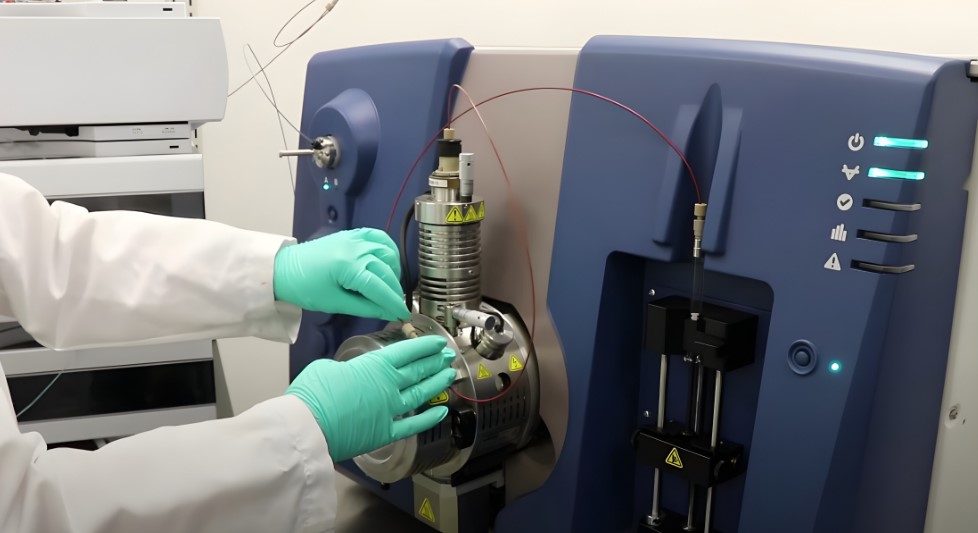
Mass spectrometry is transforming laboratory diagnostics by allowing the precise identification of proteins, peptides, and metabolites. In PM, MS plays a crucial role in proteomics, disease biomarker identification, and personalized pharmacotherapy.
Applications in Personalized Medicine:
- Cancer biomarker detection: MS enables the identification of protein signatures specific to different types of cancer according to Yang Woo Kwon.
- Drug metabolism analysis: By analyzing metabolic pathways, MS helps adjust medication dosing for individual patients.
- Infectious disease detection: Identifies microbial pathogens with greater specificity than traditional culture-based methods.
Challenges of MS Implementation:
- Identifying clinically significant proteins among thousands requires advanced computational tools.
- Mass spectrometers require significant investment and specialized training for accurate use.
- Detecting low-abundance proteins remains a challenge for some conditions.
AI-Driven Innovations in Clinical Laboratories:
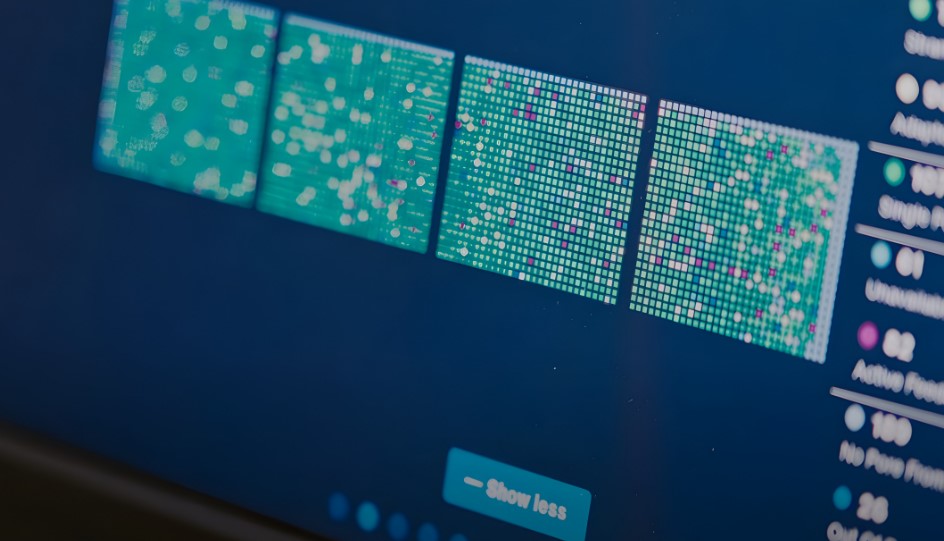
- Saba Shafi says that AI algorithms analyze pathology slides to detect abnormalities more accurately than human pathologists.
- AI models predict which patients are at high risk for disease progression, enabling early interventions.
- Machine learning matches patients with the most effective therapies based on their genetic profiles.
Case Study: AI in Cancer Diagnostics
A 2020 study in Nature Medicine demonstrated that an AI-powered pathology system reduced diagnostic errors by 5% when detecting breast cancer, outperforming human pathologists.
| Technology | Accuracy Improvement (%) | Reduction in Diagnostic Time (%) |
| AI-Based Pathology | 85% | 60% |
| Traditional Methods | 70% | N/A |
Challenges of AI Adoption in Clinical Settings:
- Data bias: AI models require diverse datasets to ensure accuracy across different patient populations.
- Ethical considerations: Transparency in AI-driven diagnostics is necessary to build trust among healthcare providers and patients.
- Regulatory barriers: Ensuring AI compliance with medical standards remains a challenge.
Enhancing Laboratory Efficiency with Advanced Hematology Analyzers
To keep up with the increasing complexity of PM, laboratories require high-performance diagnostic equipment capable of handling advanced testing needs. Dipylon Medical provides state-of-the-art hematology analyzers designed to improve accuracy and efficiency in clinical diagnostics. These advanced tools allow for precise blood analysis, aiding in disease detection and treatment monitoring, making them essential for modern laboratory workflows.
Proteomics and Biomarker Discovery
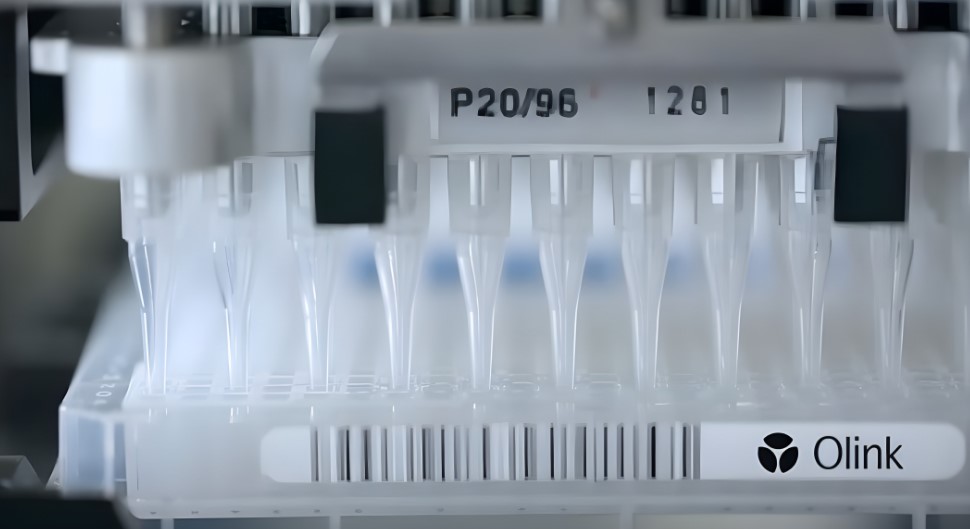
Proteomics is essential for identifying biomarkers that can guide disease diagnosis and therapeutic decision-making.
Key Biomarkers in Personalized Medicine:
- Prostate-specific antigen (PSA): Used to detect and monitor prostate cancer.
- HER2: A marker for breast cancer that determines eligibility for targeted therapy.
- C-reactive Protein (CRP): Indicates inflammation and can guide treatment for autoimmune diseases.
Common Biomarkers and Their Clinical Applications:
| Biomarker | Disease Indication | Sample Type |
| PSA | Prostate Cancer | Blood |
| HER2 | Breast Cancer | Tissue |
| CRP | Inflammation | Blood |
The Future of Clinical Laboratories in Personalized Medicine
Challenges to Overcome:
Data Management and Integration:
- Handling vast amounts of sequencing, imaging, and proteomic data.
- Developing secure frameworks for data sharing.
Regulatory and Ethical Considerations:
- Ensuring compliance with HIPAA and GDPR for patient data protection.
- Addressing the ethical implications of genetic testing and incidental findings.
Cost and Accessibility:
- Developing cost-effective PM solutions to increase accessibility.
- Overcoming economic disparities that limit high-tech diagnostic adoption.
Opportunities for Growth:
Liquid Biopsies:
- Detecting circulating tumor DNA (ctDNA) for real-time cancer monitoring.
- Enabling non-invasive, early cancer detection.
Wearable Biosensors:
- AI-powered glucose monitors for personalized diabetes management.
- Smartwatches detecting early cardiac arrhythmias.
Precision Drug Dosing:
- AI-driven algorithms optimizing drug dosages based on real-time patient data.
Methodology
We analyzed multiple scientific sources, including NCBI, PBMDC, and peer-reviewed journals, to ensure accuracy.
Industry professionals such as Yang Woo Kwon and Saba Shafi provided valuable perspectives on evolving laboratory technologies.
We incorporated global market trends and statistical data to highlight the growth of personalized medicine. We included examples like AI-driven pathology and hematology analyzers to show real-world impact.
The article emphasizes NGS, AI, proteomics, and MS as key drivers of transformation in clinical laboratories. We highlighted both opportunities and challenges to help laboratories adapt effectively.
Endnote
Clinical laboratories are at the center of a quality healthcare revolution, driven by advancements in personalized medicine. By leveraging technologies like NGS, MS, AI, and proteomics, they are redefining how diseases are diagnosed, monitored, and treated.
While challenges such as high costs, data privacy, and regulatory compliance remain, the potential of PM to improve patient care is undeniable. The labs that embrace these innovations will shape the future of precision healthcare, ensuring that every patient receives the most effective treatment tailored to their unique biological makeup. References:
- Dodig S, Čepelak I, Dodig M. Are we ready to integrate advanced artificial intelligence models in the clinical laboratory? Biochem Med (Zagreb). 2025 Feb 15;35(1):010501. doi: 10.11613/BM.2025.010501. Epub 2024 Dec 15. PMID: 39703759; PMCID: PMC11654238.
- Satam H, Joshi K, Mangrolia U, Waghoo S, Zaidi G, Rawool S, Thakare RP, Banday S, Mishra AK, Das G, Malonia SK. Next-Generation Sequencing Technology: Current Trends and Advancements. Biology (Basel). 2023 Jul 13;12(7):997. doi: 10.3390/biology12070997. Erratum in: Biology (Basel). 2024 Apr 24;13(5):286. doi: 10.3390/biology13050286. PMID: 37508427; PMCID: PMC10376292.
- Kwon YW, Jo HS, Bae S, Seo Y, Song P, Song M, Yoon JH. Application of Proteomics in Cancer: Recent Trends and Approaches for Biomarkers Discovery. Front Med (Lausanne). 2021 Sep 22;8:747333. Doi: 10.3389/fmed.2021.747333. PMID: 34631760; PMCID: PMC8492935.
- Shafi S, Parwani AV. Artificial intelligence in diagnostic pathology. Diagn Pathol. 2023 Oct 3;18(1):109. doi: 10.1186/s13000-023-01375-z. PMID: 37784122; PMCID: PMC10546747.
- McGenity, C., Clarke, E.L., Jennings, C. et al. Artificial intelligence in digital pathology: a systematic review and meta-analysis of diagnostic test accuracy. npj Digit. Med. 7, 114 (2024). https://doi.org/10.1038/s41746-024-01106-8
